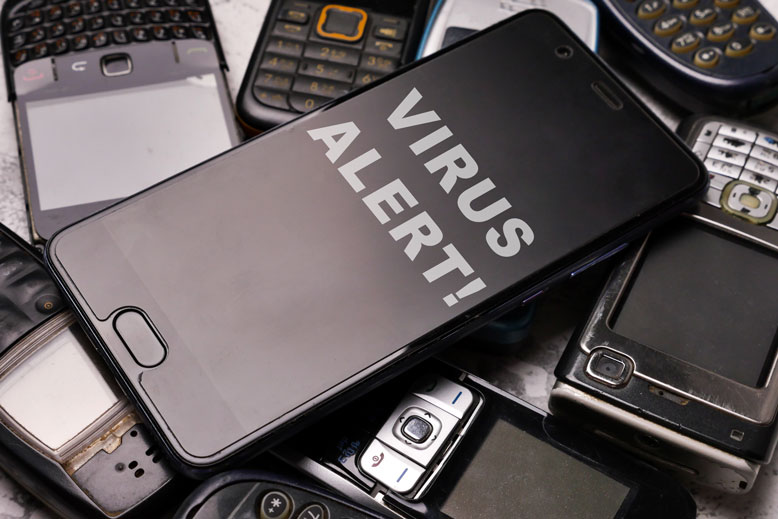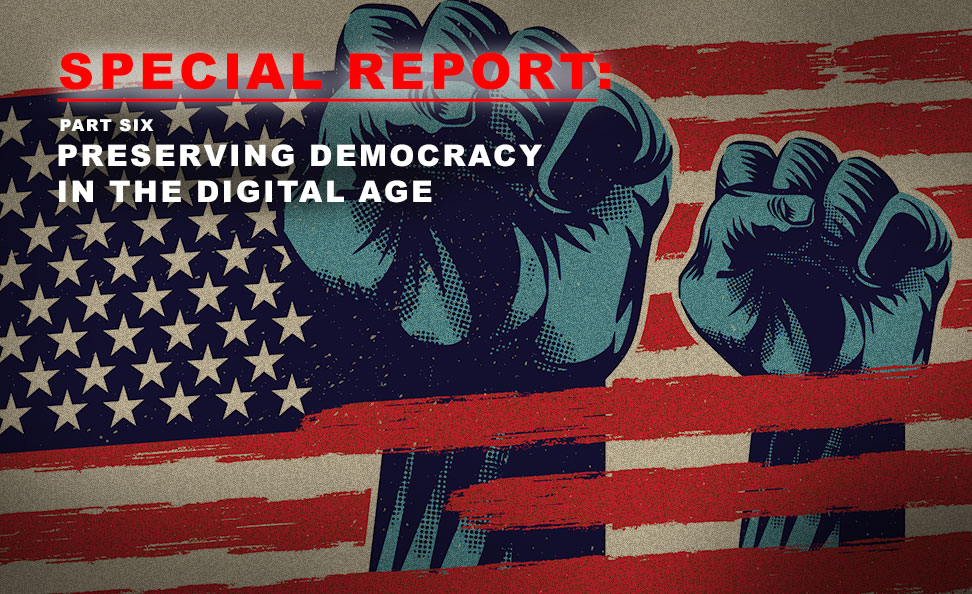The concept of true anonymity might seem like a relic of the past. But when it comes to cell phone anonymity, reclaiming some control over your digital footprint is more important than ever. So, what exactly is cell phone privacy, and why should you care?
Put simply, it’s about minimizing the amount of personal data your phone shares with the world. It’s about keeping your browsing habits, location, and sensitive information under your own lock and key. Think of it as building a privacy wall around your phone, letting in only what you’re comfortable with.
Why is this crucial? The answer lies in the ever-growing shadow of data breaches, identity theft, and the constant bombardment of targeted advertising. Every app you download, every website you visit, every time you enable location services – you’re leaving a trail of digital breadcrumbs. This data can be collected, analyzed, and even sold, putting your privacy and security at risk.
Taking control of your cell phone anonymity isn’t some impossible mission. By implementing a few key strategies, you can reclaim your privacy and navigate the digital world with more confidence. It’s not about disappearing completely, but about making informed choices about what information you share and with whom.
It’s about striking a balance between convenience and privacy, ensuring that your phone serves you, not the other way around. Let’s break down the barriers and unlock a more secure and private mobile experience, together.
1 - Cloaking Your Digital Footsteps: The Power of VPNs

Ever feel like your phone is broadcasting your every move to the world? Well, with a Virtual Private Network (VPN), you can reclaim some control and shroud your online activity in a cloak of invisibility. Think of it as a secret tunnel for your internet traffic, masking your true location and encrypting your data like a high-tech bodyguard.
So, how does this magic trick work? When you connect to a VPN, your internet traffic gets rerouted through an encrypted tunnel to a remote server. This server then acts as your online intermediary, masking your actual IP address and making it appear as if you’re browsing from a different location. It’s like wearing a digital disguise, making it much harder for websites, apps, and even snooping eyes to track your online movements.
But the benefits of a VPN go beyond just playing online hide-and-seek. Here’s why you might want to consider adding one to your cell phone anonymity arsenal:
- Enhanced Security: That encryption we mentioned earlier? It’s like a force field for your data, scrambling it into gibberish unreadable by anyone trying to intercept it. This is especially useful when using public Wi-Fi, which can be riddled with security vulnerabilities.
- Privacy Paradise: No more targeted ads following you around like creepy digital stalkers! By masking your location, VPNs make it harder for advertisers and other trackers to build a profile on you and bombard you with unwanted promotions.
- Content Liberation: Ever get frustrated by geo-restricted websites or streaming services? A VPN can unlock a world of content by allowing you to virtually change your location and access websites that would otherwise be unavailable.
However, with great power comes great responsibility (and a few things to consider):
- Choosing the Right VPN: Not all VPNs are created equal. Do your research and opt for a reputable provider with strong encryption protocols, a clear no-logs policy (meaning they don’t track your activity), and servers in locations that suit your needs.
- Speed Bump Ahead: Encryption takes some processing power, so using a VPN might slightly slow down your internet connection. However, most reputable providers offer good speeds that won’t significantly impact your browsing experience.
- Not a Foolproof Shield: While VPNs offer valuable protection, they’re not magic cloaks that make you completely invisible. Always be mindful of what information you share online, even when using a VPN.
2 - Disappearing Acts: Wisely Managing Location Services
Ever feel like your phone knows your every move a little too well? It’s not paranoia; it’s location services! These handy features use GPS, Wi-Fi, and cellular signals to pinpoint your location, offering convenient perks like weather updates, navigation assistance, and location-based recommendations. But like any powerful tool, location services come with a privacy trade-off.
So, how does it work? Imagine your phone as a tiny beacon, constantly broadcasting its whereabouts. Apps with location access can tap into this signal, creating a detailed map of your movements throughout the day. While this can be useful for certain apps, like ride-hailing services or fitness trackers, it also raises concerns about privacy, cell phone anonymity, and data collection.
But before you hit the “disable” button in a panic, let’s explore the benefits of location services:
- Convenience King: Location services make life easier in countless ways. Lost in a new city? Navigation apps point you in the right direction. Craving a specific coffee shop? Location-based searches help you find nearby options. Need real-time weather updates for your outdoor activity? Location services deliver them straight to your phone.
- Safety First: Location services can also be lifesavers in emergencies. If you need help, emergency responders can quickly locate you using your phone’s signal. Certain apps even offer features like fall detection and emergency alerts, providing extra peace of mind.
However, the convenience comes at a cost:
- Privacy Paradox: Sharing your location constantly creates a detailed digital trail of your movements. This data can be collected and used by companies, advertisers, and even governments, raising concerns about privacy and potential misuse.
- Battery Blues: Location services are power-hungry, draining your battery faster than a rogue app running in the background. Disabling them can significantly extend your battery life, especially when you’re not actively using location-based features.
- Data Drain: Location services use data, which can be a concern for users with limited data plans. Disabling them can help you stay within your data limits and avoid unexpected charges.
So, what’s the verdict? Ditch location services completely and live off the grid? Not necessarily. The key is finding a balance:
- App-by-App Approach: Instead of a blanket on/off switch, consider managing location permissions on an app-by-app basis. Grant access only to apps that genuinely need your location and revoke it for those that don’t.
- Location Modes: Many phones offer different location modes, like “high accuracy,” “battery saving,” and “device only.” Choose the mode that best suits your needs and privacy preferences.
- Location History: Check if your phone stores your location history and consider deleting it regularly if you’re uncomfortable with the data being collected.
Regaining control of your location data is an ongoing process.
Location services offer undeniable convenience, making daily tasks smoother and opening up new possibilities. However, the constant sharing of your location data raises valid concerns about privacy and resource usage.
By understanding both sides of the coin, you can make informed decisions to leverage the benefits of location services while protecting your cell phone privacy, cell phone anonymity, and extending your battery life.
3 - Guarding Your Vault: Protecting Personal Information
Your phone is like a personal data bank vault, storing a treasure trove of information about you. Unfortunately, not everyone you encounter online has good intentions, and sharing sensitive data carelessly can leave you vulnerable to identity theft, financial scams, and other digital dangers. So, how do you lock down your phone’s vault and keep your personal information safe?
Think twice before you share: Not all information needs to be public. Consider the risks before sharing anything over the phone or online, especially:

- Financial details: This includes your social security number, bank account information, credit card numbers, and even your home address. Sharing these opens the door to financial fraud and identity theft.
- Personally identifiable information (PII): This includes your full name, date of birth, and home address. While seemingly harmless, these details can be combined with other data to paint a detailed picture of you, making you vulnerable to targeted scams.
- Sensitive documents: Avoid sharing scans of passports, IDs, or other sensitive documents electronically. If necessary, use secure file-sharing platforms with proper encryption and access controls.
Remember, sharing is not always caring: Many online scams rely on social engineering, tricking you into revealing personal information. Be wary of:
- Unfamiliar callers or emails: Never share personal information with someone you don’t know and trust. Legitimate companies won’t pressure you to share sensitive data unsolicited.
- Phishing attempts: These emails or texts often impersonate legitimate organizations, urging you to click on links or share information. Look for suspicious language, misspelled words, and unfamiliar sender addresses.
- Social media oversharing: Publicly sharing your travel plans, home address, or relationship status can make you a target for theft or scams. Be mindful of what you post and adjust your cell phone privacy settings accordingly.
Embrace secure alternatives. Sharing sensitive information is sometimes unavoidable, but there are safer ways to do it:
Password managers: Securely store complex passwords for all your online accounts, eliminating the need to share them with anyone.
Encrypted messaging apps: These apps scramble your messages and calls, making them unreadable to anyone intercepting them. Popular options include Signal and Telegram.
Secure file-sharing platforms: When sharing sensitive documents, use platforms with features like encryption, password protection, and access controls.
Taking control of your personal information is an ongoing process. By being mindful of what you share and utilizing secure alternatives, you can transform your phone’s information vault into a fortress. Vigilance is key.
4 - Whispering Secrets: Securing Communication with Encryption
Ever feel like your conversations are being eavesdropped on by prying eyes, even in the digital realm? Well, worry no more! Encryption apps come to the rescue, acting as digital bodyguards for your messages and calls, ensuring they reach their intended recipient unscathed. This is the main idea behind cell phone privacy and cell phone anonymity.
So, how does this magic work? Imagine your messages and calls as letters written in plain English. Encryption apps scramble these letters using complex algorithms, transforming them into an unreadable code. Only the recipient who possesses the “key” can decipher the code and understand the message, leaving snoopers in the dark.
But why should you even consider encrypting your communication? Here are some compelling reasons:
Privacy Powerhouse: Encryption keeps your conversations confidential, shielding them from potential data breaches, government surveillance, or even nosy friends and family. It’s like having a virtual soundproof room for your digital dialogues.
Peace of Mind Potion: With encryption, you can finally ditch the paranoia and enjoy worry-free communication. Knowing your messages are secure brings a sense of calm and allows you to express yourself freely without fear of interception.
Now, you might be wondering which encryption app to choose from the many available options. Here are a few popular and secure choices to get you started:
Signal: Renowned for its user-friendly interface and strong encryption protocols, Signal is a great all-rounder for both text and voice calls.
Telegram: Offering features like group chats and self-destructing messages, Telegram provides a robust platform for secure communication, but with slightly less user-friendly navigation compared to Signal.
WhatsApp: While not as end-to-end encrypted by default as the previous options, WhatsApp offers optional encryption for added security on your existing messaging platform.
Choosing the right encryption app depends on your individual needs and preferences. Do your research, consider the features offered, and prioritize strong encryption protocols for maximum protection.
By making encryption a natural part of your communication routine, you’ll be taking a significant step towards reclaiming your cell phone privacy and enjoying the peace of mind of knowing your conversations are truly yours.
5 - Downloading with Discernment: Avoiding the Malware Minefield

Downloading new apps can be like exploring a candy store – exciting, but filled with potential pitfalls. While many apps enhance our lives, some harbor malicious intent, waiting to steal your data or wreak havoc on your phone. So, how do you navigate this digital landscape and emerge unscathed? Let’s embark on a mission of “downloading discernment”!
First, understand the risks: Downloading untrustworthy apps can unleash a malware monster, stealing your personal information, bombarding you with unwanted ads, or even taking control of your phone’s functions. Scary stuff!
Now, equip yourself with detection tools: Be wary of these red flags:
Shady Sources: Stick to official app stores like Google Play Store or Apple App Store. Avoid downloading from unknown websites or third-party sources, as they might harbor malware.
Permission Overload: Be cautious of apps requesting excessive permissions unrelated to their function. Why does a flashlight app need access to your contacts? Think twice before granting such permissions.
Suspicious Reviews: Read user reviews before downloading. A flood of negative reviews, especially mentioning security concerns, is a major red flag.
Beyond these red flags, here are some best practices for safe downloading:
Stick to Reputable Developers: Choose apps from well-known developers with a good track record. A little research goes a long way!
Read App Descriptions Carefully: Understand what the app does and the data it collects before hitting download.
Keep Apps Updated: Outdated apps have security vulnerabilities. Regularly update your apps to patch these and stay protected.
Apps can be awesome, but hidden dangers lurk. Avoid shady sources, question excessive permissions, and choose reputable developers to turn your phone into a secure haven, free from the malware minefield.
Wrap Up
These five tips are the first steps towards cell phone anonymity. Mastering essential skills like VPNs, encryption, and data protection will help secure your cell phone privacy.
But you need to stay on top and remain vigilant. And you’re now equipped to navigate the digital landscape with confidence. Explore further resources, experiment with new tools, and prioritize your privacy – your phone (and peace of mind) will thank you!
Together, let’s build a more secure digital future, one empowered user at a time.








